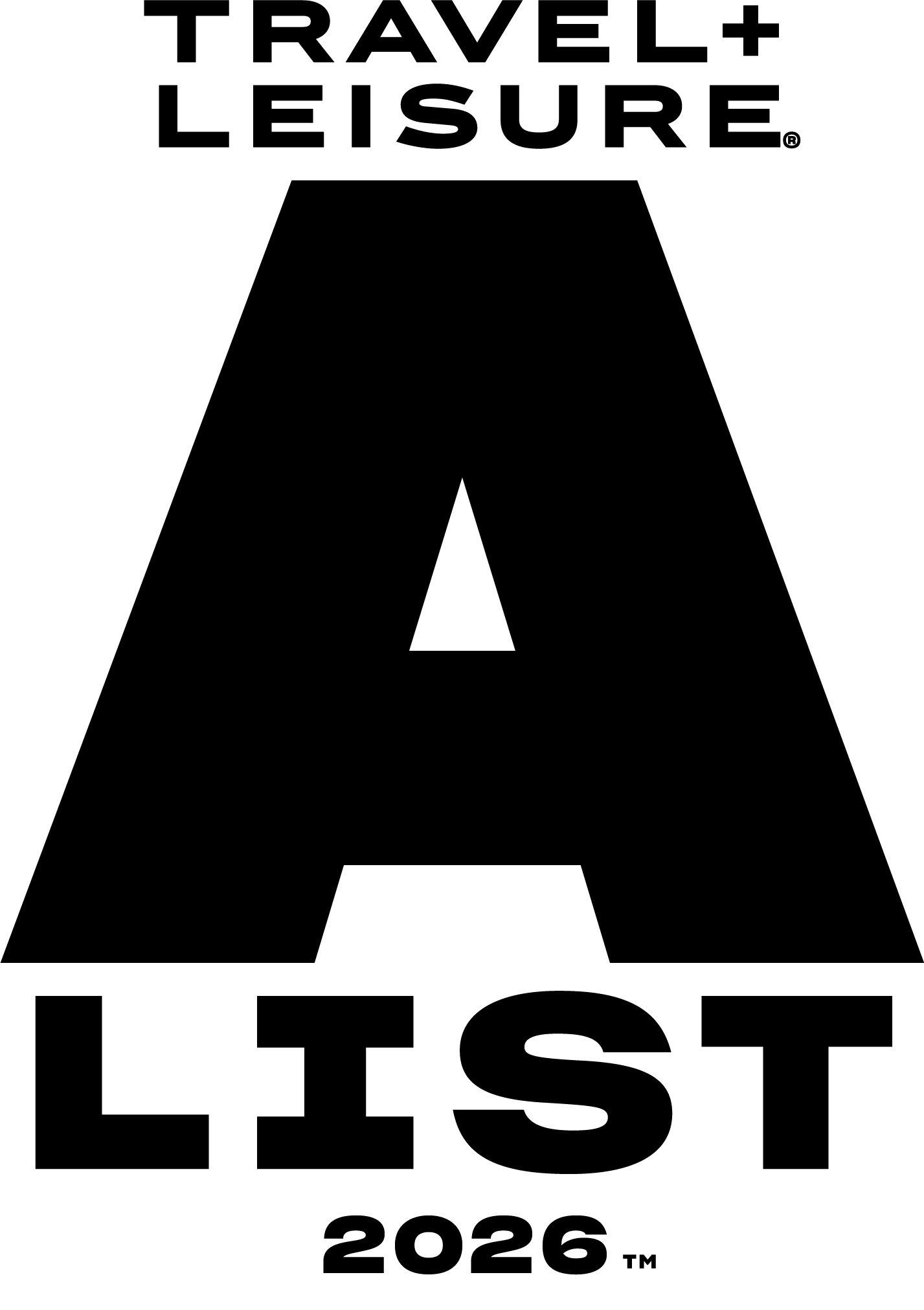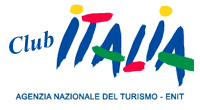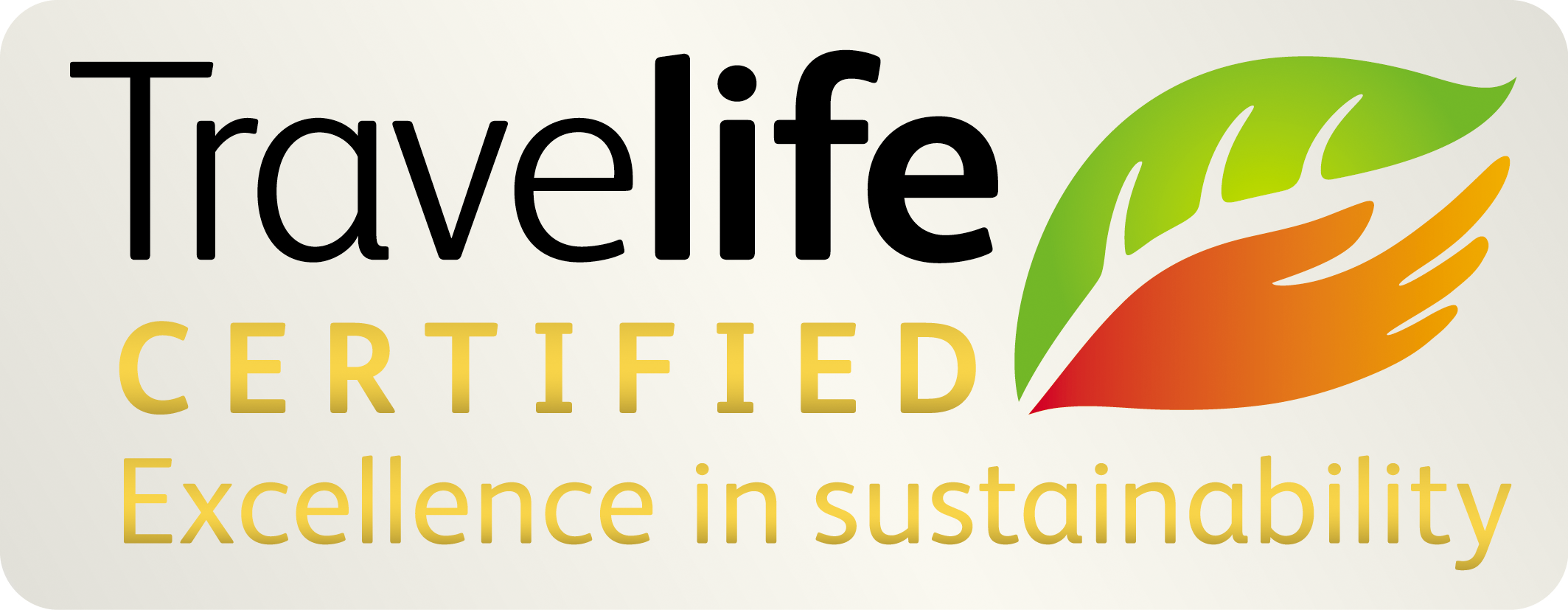Introduction:
Tourism is one of the largest and fastest growing global industries. Tourism growth means creation of significant employment and economic development. Tourism growth means also that more and more different people and cultures, different lifestyles can get closer and interact. Tourism growth leads to a strong impact on the environment, the local economies, the social and cultural heritage where it operates.
When not managed properly tourism impact can be negative and disruptive for the environment (from resource consumption to pollution and waste generation), for the destinations (from cities centers crowding to monuments preservation endangering), for local people and cultures (from interference with local habits to increasing of illegal activities such as drug and prostitution).
Tour operators are an important part of the Tourism industry. Therefore, they are in part responsible for the negative impacts of tourism, as they determine where many tourists go and which facilities they use. On the other end, they can influence the choices of consumers, the practices of suppliers and the development patterns of destinations, in order to create a “positive loop”. A clean and pristine environment, with authentic local culture and friendly people, are the reasons why people travel. It is thus in the tour operators’ interest to preserve the environment in their destinations and to establish good relationships with local communities, to improve the quality of their tourism products and increase customer satisfaction. Besides strengthening their brand values and reputations with consumers, integrating sustainable principles into tour operators’ business practices can also create better relationships with suppliers, staff and local communities, increasing their respect as a partner in destinations and limiting the risk of problems or conflicts.
Our Principles:
Fuoritinerario – Discover Your Italy is a relatively small and young Tour Operator. The milestone of our company and our daily work is our passion: our passion for travel and our passion for our Country, Italy.
We consider ourselves lucky for being born, living and working in such a beautiful place, rich in culture and tradition. Therefore, we strongly believe that the way we operate our business should have a positive impact on “what we touch”: environment, local communities, art and cultural heritage of our Country, our suppliers, our travelers.
<<We recognize our responsibility to develop and operate in a manner that makes a positive contribution to the natural, social and cultural environment.
We also recognize and accept our responsibility to operate in ways that reduce environmental impacts, benefit local communities, safeguard the future livelihood of local people, and ensure the protection of destinations for future generations.>>
Our Code of Conduct:
We are committed to take into account Responsible Travel and Sustainable Tourism principles in the following relevant areas of our operations:
- Offices and internal operations: we are committed in taking into account sustainability principles in our daily office management, HR management, office supplies and production of printed material
… in practice:
- Our Perugia and Milan offices are located near the main transportation terminals available in the area: train station, subway, and innovative e-monorail public transportation system. The use of these sustainable means of public transportation is encouraged to reduce pollution and traffic congestion in the two cities.
- Our office building is also the main terminal of the e-monorail public transportation system: this sustainable public mean of transportation is used to reduce pollution and traffic congestion in our city.
- Our offices in Perugia and Milan are equipped with state of the art led lighting and air conditioning/heating systems to reduce energy consumption.
- To reduce the technological waste in our office, we decided to change our PCs every 5 years instead of every 3.
- We strive to have a paperless office. We are very careful not to waste any paper for our prints (and we always use both sides of each paper sheet); we try to minimize the use of paper brochures.
- We recycle all our waste (paper, plastic, organic). We drink “filtered” tap water instead than bottled water, that allows us to reduce of 95% the use of plastic bottles.
- Our staff’s wages are according or above the best practices set from the national labor law. Where possible, employees should use public transport, walk to commute or to attend meetings and trade fairs.
- Product Development and Management: we are committed in planning Tours that minimize environmental, economic and social impacts; we are committed in planning Tour that fosters intercultural understanding and respect for local customs and culture.
… in practice:
- Our Tours are designed exclusively for very small groups and private travelers: that allows travelers to get in close contact with the places visited, easily interact with local people, while not overburdening them with visitors. This means greater opportunity for cross-cultural understanding. Small groups and private tours have a much “softer” impact on the environment: less pollution (they travel by small bus and public transportation rather than by a large coach; walking tours can be more easily organized); less waste (it is easier to give waste guidelines and control a small group of people).
- Our original Itineraries will take travelers to discover unique destinations off the beaten track overlooked by the large scale and mass tourism. Furthermore, even when we visit most touristic sites we carefully try to avoid tourists overcrowded spots thanks to the ability of our local guides that can suggest secondary streets or less crowded timing to visit and thus better enjoy a “must see” spot.
- Our Tour Calendar and Planning allows travelers to choose also among many “low season” departures: we believe that travelling during the low season allows to get closer in touch with the local life and enjoy the unique atmosphere of most popular places, which will be too crowded during peak touristic season; this also allows suppliers to better spread their activity during the year and offer the customer a higher level of service.
- Most of the guided visits in the places included in our Tours are “walking guided tours”: we think that is the best way to appreciate the architecture and the atmosphere of most of our cities centers and villages; furthermore, many of the historic Italian cities do not permit motorized vehicles in their centers and we strongly support these local government initiatives.
- We plan our Tour calendar to coincide with local events and celebrations. Special events open windows into the local culture, and the money spent on food and crafts stays in the community.
- In every tour we include one or more “Slow Food” Restaurants (Slow Food is an Italian Association, founder of the international “Slow Food” movement, whose aim is to combat fast-food globalization by promoting local products, traditional cuisines and ways of life).
- Suppliers and Local Partners: we are committed in using locally owned “Italian style” infrastructure for accommodation and transport; we are committed in using local typical restaurants for meals; we are committed in using local experts and authorized local guides; we are committed in supporting local artisans. This benefits local people by providing valuable employment and spreading the financial benefits amongst local people and operators; further more benefits our customers/travelers by making them experience the “real culture of Italy”, from every detail of their holiday. Where possible we prefer to cooperate with partners having a sustainability policy or certification.
… in practice:
- All the hotels we selected are locally/Italian owned and managed. We have visited them, we know the people who manage them and they have proven their sense of style, a fondness to detail, and an elegance typical of the Italian character; at the same time, they are very attentive to the quality of service and to sustainability principles.
- We only use small hotels, that have a much lower impact on the environment. We prefer accommodations that formally adhere to the sustainable tourism principles or that can demonstrate efforts to reduce their environmental impact. We use as reference the guidelines indicated by “Legambiente Turismo”:
- waste reduction, through less single portions versus more refillable containers and separate waste collection;
- water saving, through saving appliances and indications to customers for rational use;
- certified-quality detergents and indication to customers for rational use;
- energy saving through energy saving lamps and appliances;
- healthy food (local fresh products; typical local food; organic food);
- noise abatement.
- For all the meals we include in our Tours we have chosen the traditional cuisine using local products: form the small typical “trattoria” to the elegant gourmet restaurant, they are all locally owned and they guarantee the use of the best local/Italian fresh products.
- We participate to local Chambers of Commerce Programs aimed to sustain the tradition and the work from small local artisans and in every Tour we include visits to local artisans workshops: this enables travelers to understand the tradition and buy true handmade crafts from local artisans; and enables artisans to show their talent and get a fair reward for their valuable work.
- We have chosen to employ local guides: our small group & private tour formula allows us to give every group the support of more than one local guides, depending on the complexity of the itinerary. The local guide will be really capable to make the traveler understand not only the art, but the true culture of each place visited, making a much more in-depth experience. Our local guides agree with our responsible tourism principles and will help the travelers to respect the environment while enjoying their visits (encourage travelers not to litter, by indicating the proper way to recycle waste, even in public areas; encourage travelers to respect the places they visit: art pieces, architecture, environment).
- Tourism Legislation and Code of Conduct: we commit to operate in accordance with all national and international rules regulating our industry.
… in practice:
- We are a professional Tour Operator fully licensed and bonded in accordance to Italian Law.
- We only use fully authorized guides and drivers for our Tours (Italian and local legislation is very strict about that) and we support and encourage fair employment practices.
- We actively ban drivers, guides and passengers participation in or endorsement of commercial sexual activities or illegal drug use, as well as alcohol abuse on our Tours.
- Customer Relations and Satisfaction: we are committed to give our travelers the best possible value.
… in practice:
- We guarantee privacy, health and safety standards for our Tours and our suppliers
- We guarantee the respect of every detail of our commercial promise (itinerary described, activities included, accommodation and meals standards promised, etc). Even in case we have to change some detail on our published programs, due to unforeseeable circumstances, we guarantee the replacement with equivalent ones.
- We guarantee to provide opportunities for travelers to “experience the true Italian culture”
- We provide our customers with information on responsible behavior and sustainability issues while they travel on our Tours in Italy.
RESPONSIBLE TRAVEL AND SUSTAINABLE TOURISM: GUIDELINES FOR TRAVELLERS
Discover your Italy … respect our Italy!
Here you can find some tips we believe will help you make your Italian Cultural experience really memorable and valuable, both for you and for the people you will meet.
- Before leaving home learn as much as possible about Italy and its culture – our culture, religion, values and habits. Dig deep into the peculiarities of the places your Tour will cover; read a novel set in Italy, or an Italian literature masterpiece (you will find soon in our website a link to our suggested readings)… go beyond the “mafia, pizza, mandolino” stereotype!
- Learn some basic Italian language and don’t be afraid to use it. Learn well a few basic phrases. If you show some efforts to get in touch with them, Italians will do their best to try to understand you and make them understood, even if they do not speak your language … a simple “Buongiorno, come stai” (Good morning, how are you?) will make you confident to address local people and help break the ice!
- Learn what’s appropriate behavior and body language. In Italy we use body language a lot, especially hand gestures that will make you easier to understand what local people say.
- When browsing for the tours, pay attention to off season departures, special events departures, off the beaten track destinations: they will give you more chances to interact with local people … and most of the times these packages are cheaper!
- During your stay in Italy, prefer typical locally owned businesses, restaurants and other services. Eat local food and drink local wines. Try the tasty Italian street-food, instead of fast food!
- Shop from traditional artisans and for locally made products, help keep traditional crafts alive and prefer local products over imported items. Look for quality and recognize a fair price for it. Furthermore, Italian manufacturers create some of the finest items in the world: from linens to glassware to ceramics to jewelry, to fashion and leather items. Ask local people or your local guides where you can find good bargains on “made in Italy” items and do not be tempted to buy “fake” ones. Counterfeit is very harmful to our manufacturers … and you will never make good deals buying those products!
- Dress properly and respectfully with an awareness of local standards. For the summer season choose breathable, lightweight fabric, and remind that in Italy it is not really appreciated to dress “beach-style” in the town centers. Be respectful of religious places and be aware that you will not be admitted in most churches if your shoulders or legs are not properly covered.
- Respect Architecture and Art: ancient buildings and art are fragile. Never touch a piece of art, especially if it is not protected, as the fingers’ natural oils can destroy paintings, and touch of thousands of hands can erode even rock carvings (if you look carefully at the famous Michelangelo’s Pietà in St Peter’s Basilica, Jesus’ foot is “worn out” by the thousands hand that touched it .. before authorities has been forced to seclude it behind a thick glass wall!). Never climb monuments, or be tempted to get refreshed in the monumental public fountains, as this can abrade building stones and sometimes dislodge them, and be dangerous for your safety as well. Treat these sites as the museums they are … and just watch the movie “la Dolce Vita” if you want to dream about bathing on the Trevi Fountain!
- Respect Sacred Places: Churches in Italy are true art “treasure chests” and certainly you will visit many of them. When visiting Churches you should remember that they are first of all sacred places. Avoid to visit Churches during Celebrations, talk softly, wear appropriate clothing and use your camera only as indicated at the entrance.
- During your Tour you will meet a lot of local residents. Italians are very open people, but as general rule, be respectful of peoples’ privacy. Always ask first before photographing or videoing people, in particular people in villages/more remote areas and children.
- Take care of the environment, as you would do at your place: do not leave “traces” of your transit.
- Never litter. Use garbage bins in the public areas.
- Minimize your waste and recycle: buy big bottles of water instead than small ones, or drink tap water (in Italy it is always safe, and it is clearly indicated when it is not). In your hotel you will find waste recycling bins and in most cities you will also find plastic, paper and glass recycling bins in public areas.
- Respect no-smoking places, and never throw away cigarette butts (cigarette butts are the main cause of forest fires during the summer season).
- During your hotel stay, do not waste water (especially in some areas of Southern Italy and during summer season, water waste is a serious concern), and respect the hotel guidelines on how to reduce energy and detergents consumption.
- During your visit in our beautiful art cities and villages, use public transportation or just walk (instead than taxi): in the big cities public transportation is efficient, while walking is the best way to visit small villages.
- “Take it easy and smile”. Try not get nervous if the service in a small village restaurant is not that fast … just enjoy the food and the ambiance! Try not to spend all your free time in your luxury hotel … just go out and walk around, buy an ice cream and enjoy the street atmosphere!
- After returning home, take some time to give us your feedback. We appreciate your positive feedback as well as your suggestions on how to improve our service. We appreciate your comments on the places you visited, as well as your pictures or videos sharing. Describe your trip, what made it authentic, and the people you met along the way. This will be helpful for the travellers that will come after you.
As part of our commitment to sustainable and responsible tourism, we have implemented our Code of Ethics to ensure that our business activities align with the highest ethical standards. This document defines the principles and behavioral guidelines that govern FuorITinerario – Discover Your ITaly and serves as a reference for all individuals collaborating with us, both internally and externally. Click HERE to access the full Code of Ethics and join us in promoting integrity, transparency, and a more sustainable way of traveling.
To read the Italian translation of our Responsible Travel & Sustainable Tourism Policy, click HERE.
For any questions regarding our commitment to sustainability, please feel free to contact Elena, our Sustainability Coordinator, at elena@discoveryouritaly.com





